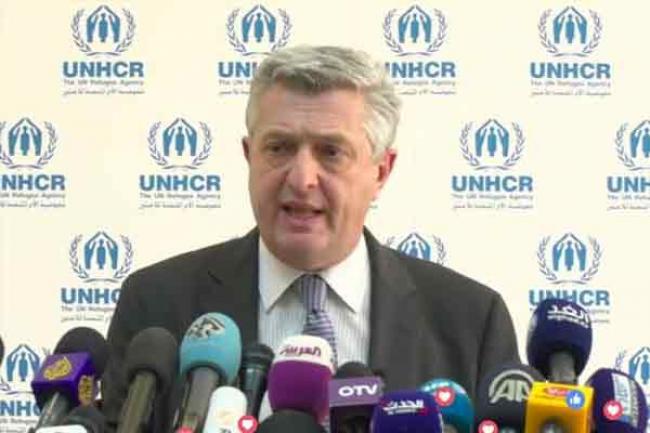Just Earth News 04 Feb 2017, 03:42 pm Print

UNHCR
“These are people that flee from danger, they’re not dangerous themselves,” UN High Commissioner for Refugees Filippo Grandi told reporters in Lebanon’s capital, Beirut following a four-day visit to Syria, where he witnessed first-hand the massive destruction caused by nearly six years of conflict.
“We have serious concerns, and these are not new concerns, we’ve had them for some time, that the refugee issue in the industrialized world – in Europe, the US, Australia – is very politicized. It shouldn’t be,” Grandi said, urging rich countries to show generosity to refugees, rather than regarding them as a threat.
According to the Office of the UN High Commissioner for Refugees (UNHCR), Grandi is the first senior UN official to visit Syria since Turkey and Russia brokered a ceasefire last month.
Grandi said that the recent decision by the United States to suspend its refugee resettlement programme would negatively impact the most vulnerable individuals.
“Resettlement means taking refugees from places like Lebanon, where they are already refugees, selecting the most vulnerable and taking them to other places,” he said. “If we weaken that programme, as has been done in the United States, this is a very dangerous weakening of the international solidarity for refugees.”
UNHCR estimates that 20,000 refugees in precarious circumstances might have been resettled to the US in the 120 days covered by the suspension set out in an Executive Order signed one week ago by President Donald Trump.
Grandi expressed his hope that the US would resume resettlements following its internal review of the programme.
As for the situation in Syria, he described progress in his discussions with the Government on humanitarian access in hard-to-reach areas, and expressed hope that some aid convoys could reach parts of Homs in the coming days.
On the issue of refugees returning to Syria, the High Commissioner said that while many were keen to go home, the political and security situation in the country currently made it impossible for large numbers to do so.
“People need to return eventually to Syria, and we all agree that that’s the ideal solution. But we need to be patient,” Grandi said. “More progress needs to be made politically, then economically and infrastructure-wise in order for conditions to be there to have large returns.”
- Pakistan: Police recover two bullet-ridden bodies from Balochistan
- IDF strikes Hezbollah targets in Lebanon after projectile fire toward Northern Israel; 31 killed
- Pakistan: Armed gunmen kidnap 14 workers during coordinated raids in Balochistan
- ISIS-inspired plot foiled in UK: Two men get life sentences for targeting Jewish community
- India rejects allegations, urges Pakistan to tackle its ‘home-grown ills’





-1763561110.jpg)
